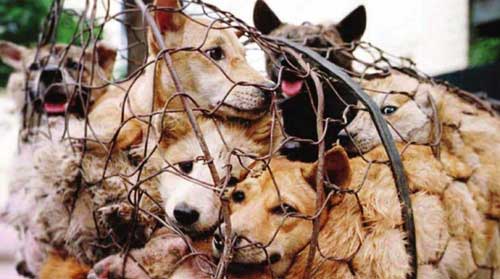Recent developments in animal cruelty laws in India have taken a centre stage as the nation grapples with the need to protect its rich biodiversity, including iconic species like the Indian Rhinoceros and Bengal Tigers.
Several key legislations, such as the Prevention of Cruelty to Animals Act of 1960 and the Wildlife Protection Act of 1972, establish animal welfare as a fundamental obligation under the Indian Constitution. However, there are pressing concerns regarding the effectiveness of these laws in addressing rampant animal cruelty.
"One major issue is the outdated penalties for animal cruelty, which have remained unchanged for six decades, ranging from Rs 10 to Rs 50 for first-time offenders. This ineffectual deterrent has led to instances where individuals accused of heinous acts against animals often escape punishment," Advocate Akankshya Misra said.
Furthermore, animal abuse has been linked to potential escalation into more severe crimes against both humans and animals, highlighting the urgency of addressing this issue.
While significant judgements like the 2014 Supreme Court ruling in Animal Welfare Board of India vs. Nagaraja have emphasised the importance of treating animals with dignity, a recent decision in 2023 allowed bull-taming sports like Jallikattu, revealing inconsistencies in animal rights jurisprudence.
"Regrettably, the offences classified as cruelty under the Prevention of Cruelty to Animals Act of 1960 are non-cognizable, except for specific instances such as animal fights, shooting, and injecting harmful chemicals," Misra told.
"Sections 428 and 429 of the Indian Penal Code, 1860 make it illegal to kill, poison, maim, or render useless animals, among other cruel acts. The aforementioned laws were passed to prevent needless animal suffering, and other laws of a similar nature continue to be passed in response to evolving conditions," she added.
Efforts are being made to strengthen animal protection, as seen in a Delhi High Court order mandating strict adherence to Animal Birth Control Rules for the capture and release of street dogs during special events.
However, "there remains a need to amend the outdated Prevention of Cruelty to Animals Act to align with contemporary challenges and uphold Article 51 A (g) of the Indian Constitution, which mandates compassion for all living creatures," Misra said.
In honor of Mahatma Gandhi's principles of nonviolence and compassion, activists are rallying for more stringent legislation and penalties against animal cruelty, recognising that the way a nation treats its animals reflects its moral progress. Upholding these values through fortified legislation is essential to India's cultural ethos and aspirations.
The practical issues that crop up in day-to-day life revolve around strays and in some circumstances pet animals as well. For example, during Covid-19 we saw a surge of abandonment of pet dogs by their respective owners. The said issue did stare the existing laws in its face as practically there was no legal protection available to the animals.
"There exists a debate on the legal personality rights of animals but presently the same is more on the academic side rather than recognising the actual rights of animals or providing any positive protection as there is no strict punishment prescribed towards the cruel acts thereby making it a case of zero deterrence," Advocate Anant Malik said.
While various NGOs and self-help organisations like Friendicoes, PETA, and several Gaushalas across the country are doing their job towards the welfare of the animals, it is the actual laws on ground which are the need of the hour.
"Control of strays and in fact even wild animals is another issue that stares the authorities in their face. One such example being a leopard entering the premises of the Ghaziabad district courts," Malik told.
Recently, the Ministry of Fisheries, Animal Husbandry & Dairying has issued the Animal Birth Control Rules, 2023. These Rules supersede the Animal Birth Control (Dog) Rules, 2001, and are issued under the Prevention of Cruelty to Animal Act, 1960.
India recorded a whopping 160 million cases of street/stray dog bites between 2019 and 2022, according to data submitted in Parliament till November 2022.
"This has also led to an increase in revenge crime and atrocities against dogs, feeders of dogs and caregivers as well as conflicts among urban residents," Malik said.
The rules have been formulated in accordance with the guidelines provided by the Supreme Court related to Animal Welfare Board of India and People for Elimination of Stray Troubles.
"The Supreme Court of India has specifically mentioned in various orders that relocation of dogs cannot be permitted.The rules aim to provide guidelines for the sterilisation and immunisation of stray dogs through Animal Birth Control (ABC) programmes," Malik told.
With the rules in place, it is to be seen how effective are the administrative authorities in implementing them. The implementation vests with local bodies like gram panchayats, municipal corporations and allied civic bodies. With an effective implementation, the purpose of enacting the rules can be satisfied with an effective system of checks and balances.








Myanmar's earthquake death toll rises to 3,770
The death toll from a 7.7-magnitude earthquake in Myanmar has risen to 3,770 as of April 28, the state-owned daily The Mirror reported on Tuesday.
ASF kills over 1,050 pigs in 3 districts of Mizoram
An official from Mizoram's Animal Husbandry and Veterinary Department (AHVD) said on Friday that the department so far declared 34 localities in three districts as ASF-infected zones -- Lawngtlai, Mamit and Siaha.
Death toll rises to 1,644 following powerful earthquake in Myanmar
A total of 1,644 people died and 3,408 were injured, and 139 remained missing due to the powerful earthquake in Myanmar, said the Information Team of the State Administration Council on Saturday.
3.8-magnitude earthquake shakes Manipur, no casualties reported
A mild quake, measuring 3.8 on the Richter scale, shook Manipur’s Noney district and adjoining areas on Saturday, officials said.
Over 510 pigs killed due to African Swine Fever in Mizoram
An official from Mizoram's Animal Husbandry and Veterinary Department (AHVD) said that over 510 pigs died due to the ASF during the past two weeks in 13 villages and localities in two Mizoram districts -- Lawngtlai and Mamit.
India's per capita CO2 emissions among lowest in world as green energy capacity surges
India, which has emerged as the world’s 5th largest economy, also stands out as a country with one of the lowest per capita carbon dioxide (CO2) emissions globally as it balances growth with sustainability and switches to renewables at a rapid pace.
Amazing news, says PM Modi as MP earns another stripe for tiger conservation
Overwhelmed by another stripe which Madhya Pradesh earned the other day for its Madhav National Park, Prime Minister Narendra Modi posted on social media about the new recognition of the park as the state's ninth tiger reserve - a true sanctuary for these majestic creatures for many years.
Chamoli avalanche: Death toll climbs to 7; rescue ops for one remaining worker underway
The death toll in the Chamoli avalanche in Uttarakhand's Mana region has reached seven, with the rescue officials pulling out three more bodies on Sunday. Meanwhile, the search operation for one missing worker is still ongoing.